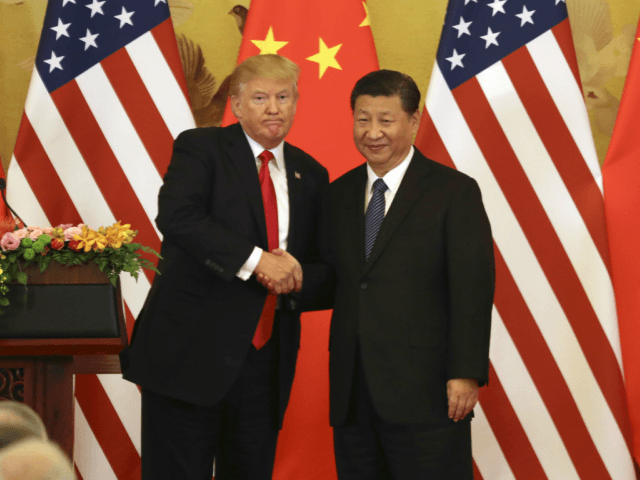China lodged strong objections to the Taiwan Travel Act this week as it emerged from the U.S. Senate Foreign Relations Committee this week and headed for a vote.
China warns that the bill, which would enable American officials to travel to Taiwan for meetings with their counterparts and vice versa, would damage relations between America and China and threaten regional stability.
China’s objections are nothing new. Beijing has been running a nonstop pressure campaign against the latest pro-Taiwan bills since their inception, including the Taiwan Travel Act and the Taiwan Security Act. China has been pulling out all the stops in its campaign to isolate Taiwan ever since the election of Taiwan’s current president, Tsai Ing-wen.
The L.A. Times notes that the Taiwan Travel Act is intended to encourage more formal contact between high-level American and Taiwanese officials, but probably not President Tsai herself. Tsai is obliged to hold unofficial meetings with U.S. officials when she takes long airplane flights that just happen to connect through American airports. China makes a point of loudly complaining about this every time it happens.
To show how serious China is, when President Trump signed legislation to improve defense cooperation with Taiwan in December, a representative from the Chinese embassy in Washington threatened to launch a full-scale invasion of Taiwan the instant any American warship docks there.
The Taiwan Travel Act has particular significance because it would highlight Taiwan’s status as a valued ally of the United States and support the notion that it has legitimate interests and responsibilities distinct from mainland China. Supporters of the TTA in both America and Taiwan believe it will improve the stability of the region by emphasizing the values both countries have in common, and making it clear that America’s commitment to Taiwan has not waned.
Of course, that belief is entertained far more vigorously in Washington and Taipei than in Beijing. The Chinese Foreign Ministry said on Friday that even though the TTA imposes no binding regulations, it still constitutes a violation of the “one China” principle that envisions Taiwan as an inseparable part of China.
“If it is passed and put into effect, it will cause serious disturbances to Sino-U.S. relations and the situation in the Taiwan Strait,” warned Foreign Ministry spokesman Geng Shuang.
“China is extremely dissatisfied and resolutely opposed to this and has already lodged stern representations with the U.S. side,” he said. “The ‘One China’ principle is the political basis of Sino-U.S. relations.”
“China urges the United States to scrupulously abide by the one China principle, cautiously handle the Taiwan issue, not have any official contact with Taiwan and not give any wrong signals to Taiwan independence forces,” Chinese Foreign Minister Lu Kang said when the U.S. House of Representatives moved on the Taiwan Travel Act in January, repeating a common talking point from Beijing that excessive support from America could inspire Taiwanese separatists to make a break for full independence, which China would answer with military force.
China’s state-run Global Times went even further with an editorial claiming the Taiwan Travel Act could “upend Sino-U.S. relations and obliterate the one-China principle.” This objection is based on the notion that China has been willing to tolerate low-level meetings between Taiwanese and American officials because they are conceptually similar to any provincial official meeting with foreigners, but high-level meetings would be an unacceptable endorsement of Taiwanese sovereignty.
The Global Times quotes China Foreign Affairs University professor Li Haidong charging that America is “playing a two-faced game” by pursuing improved relations with mainland China at the same time it builds closer ties with Taiwan and uses the island to check China’s growing regional influence.
To make it clear just how determined China is to isolate Taiwan, the editorial also harangues the U.S. for attempting to restore Taiwan’s observer status in the World Health Organization, claiming this also violates the “One China” principle.
Another post from the Global Times darkly threatened Taiwan’s future if the Taiwan Travel Act becomes law, boasts that China is now capable of defeating the U.S. Seventh Fleet if a war breaks out in the Taiwan Strait, and threatens that “the mainland will surely act to make sure Taiwan and the U.S. pay the price for their ‘high-level exchanges.’”
China also accused Japan of violating the “one China” principle on Friday because senior Japanese officials used the full titles of Taiwanese officials when sending them condolences for the deadly earthquake that struck Taiwan this week, killing 10 people at last count.
“The Japanese side openly attempted to create ‘one China, one Taiwan’ under the pretext of disaster relief and condolences,” declared the same Chinese Foreign Ministry spokesman, Geng Shuang.
“We urge the Japanese side to abide by the principles set in the four China-Japan political documents, immediately correct its wrong practice, and not make new obstacles for bilateral ties,” Geng added.

COMMENTS
Please let us know if you're having issues with commenting.